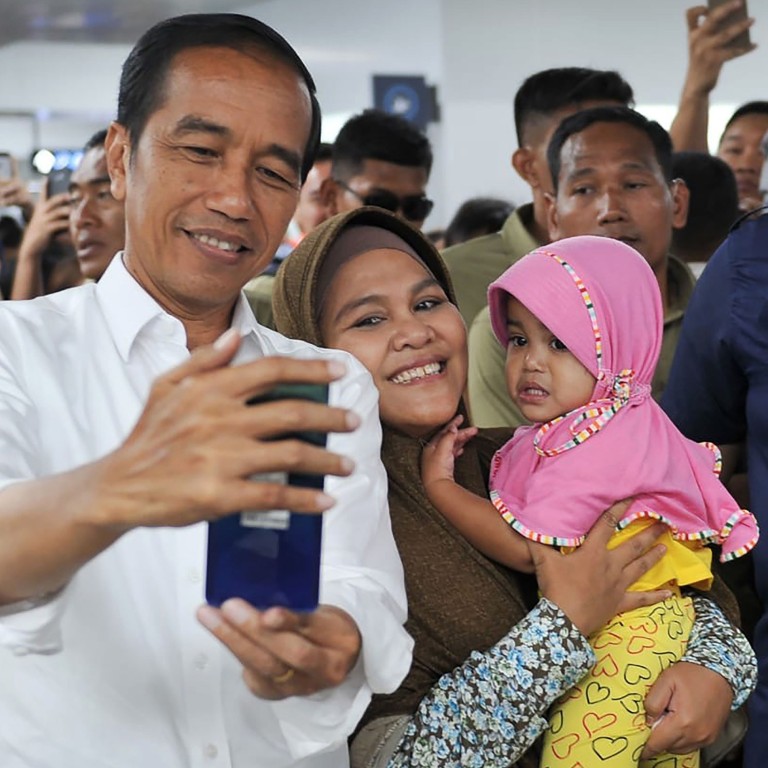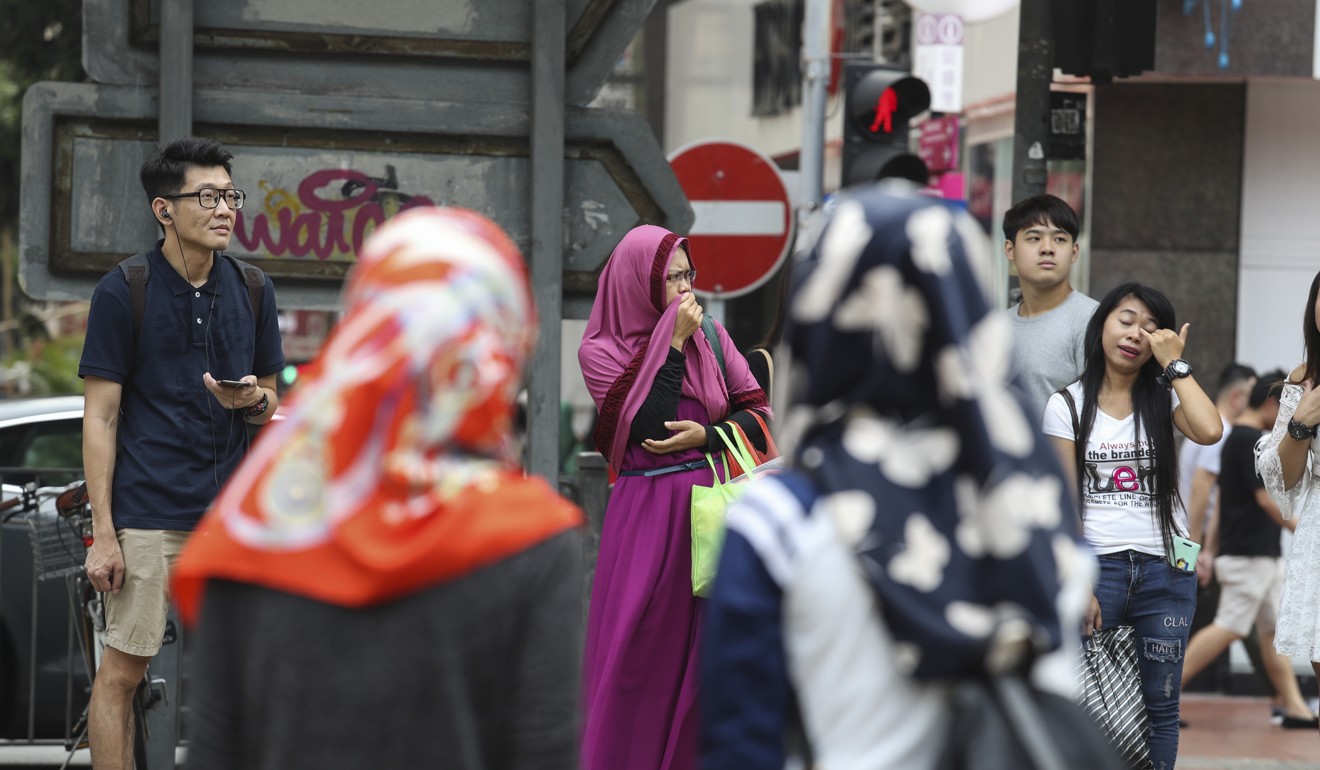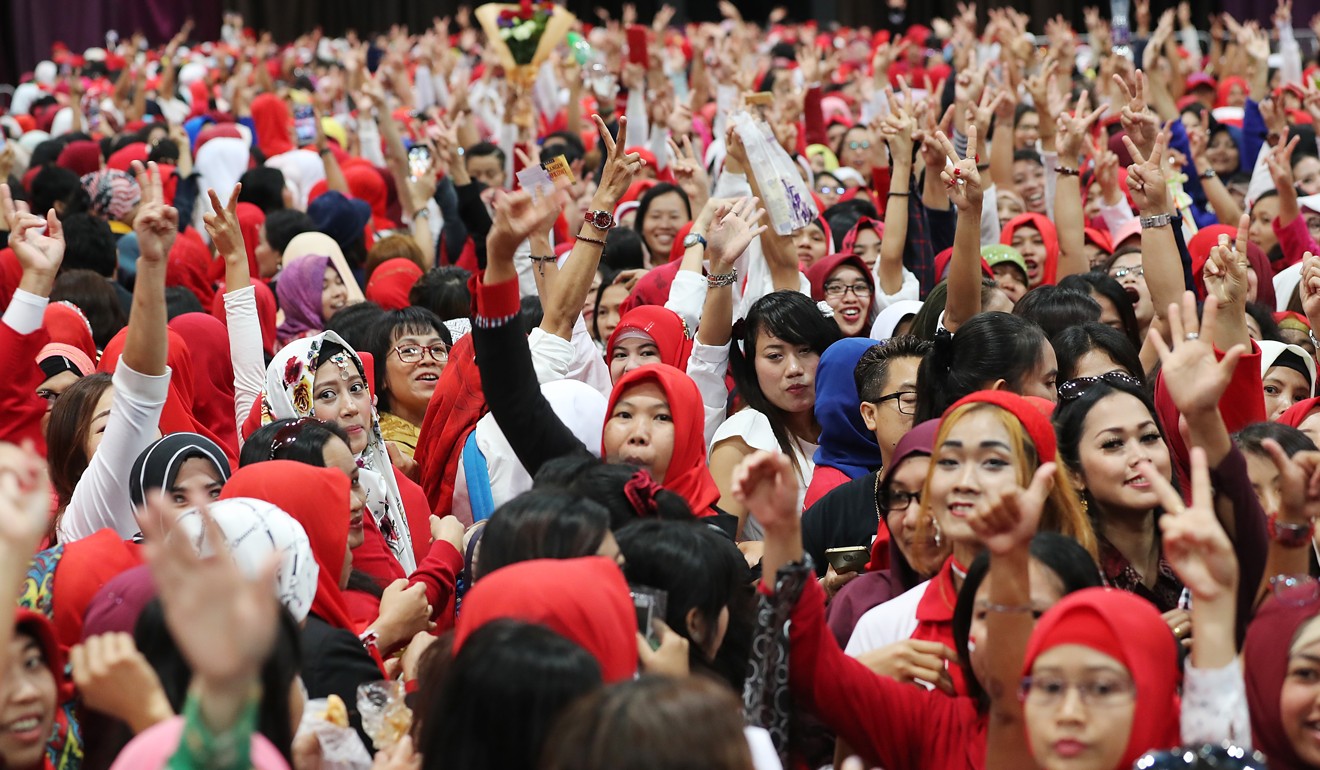
Could Hong Kong’s domestic workers sway the Indonesian election?
- Political awareness among Indonesian domestic workers is higher than ever, as thousands are set to cast their vote in Hong Kong for elections in their home country
- They are also more informed about their labour rights and reports filed at the consulate surpassed 1,300 last year, the outgoing general consul says
As about 192 million Indonesians prepare to cast their ballots on Wednesday, some of the country’s migrants workers have had a head start when it comes to helping decide the battle between incumbent president Joko Widodo and his challenger Prabowo Subianto.
In Hong Kong alone, 180,000 Indonesian nationals are registered to vote in the election – out of those, 54,000 have already confirmed their intention to vote. Some have sent their votes by mail and most plan to go to the three polling stations set up across the city on Sunday.

“The political awareness is greater today,” he said. “And, secondly, the willingness to contribute to the political process is also higher. That’s what I have noticed since last year.”
In 2014, less than 20 per cent of the eligible voters in Hong Kong joined the elections held in the world’s third-biggest democracy.
This year, polling stations are available in three locations – Yuen Long, Tsim Sha Tsui and Wan Chai – and will be open on Sunday, the day off for most domestic workers living in the city.
Exclusive: Indonesia election ‘not about religion’: Sandiaga Uno
About nine million Indonesians live abroad, making up a community that is bigger than the population of most provinces in Indonesia.
This is consul general Tri’s last major undertaking in Hong Kong, as he will leave the city at the end of the month for Kuwait, where he is going to be an ambassador.

“I went to Jakarta and met all the relevant ministers, and we agreed to do something about this. The fact that there were some terrorist suspects luring domestic workers in Hong Kong, it could mean something, so we paid attention to that,” Tri recalled.
What turns a Hong Kong domestic helper towards Islamic State?
“We also talked to people from different sectors in Hong Kong to reduce the risk of domestic workers being attracted by these networks,” he said. “And we strengthened the cooperation between the Indonesian and Hong Kong police.”
The diplomat said that such efforts seemed to have paid off. “I have not seen any reports about the issue after that. And, of course, I don’t want to see such reports again.”
According to official statistics, 165,000 out of the 180,232 Indonesians living in the city are domestic workers.
Tri said that one of his priorities had always been to improve these workers’ protection. “I passed a code of conduct for employment agencies – for those that have the licence to recruit Indonesian workers to come to [work in] Hong Kong. Since then, more than 30 agencies received sanctions, which was rarely seen previously.”
In addition to that, he said, the consulate also started allowing the renewal of contracts with the same employer without the involvement of an employment agency.

Tri said that domestic workers were now more aware of their rights than when he first got to the city in September 2016.
“They have now more courage to report to the consulate – previously they were more afraid,” he said. “And they are also becoming smarter, they put everything on the record – like using their mobile camera. The employers cannot deny certain facts as easily. Things are changing.”
Call for action on Hong Kong moneylenders forcing Indonesian and Filipino domestic helpers to hand over passports
Despite such problems, “only Taiwan is more popular than Hong Kong, so I think that the number of Indonesian workers will continue growing in the city”, Tri said.
In the last few months of his term, he has been focused on paving the way for Indonesian workers to seize future opportunities as carers in the city.
“I have discussed this with the chief executive and she agreed this should be discussed in greater detail as soon as possible, because – like it or not – the population is ageing fast in Hong Kong and the life expectancy is among the highest in the world. So, at some point, the Hong Kong government will open the market for foreign carers,” he said.
“It may take some years. But the earlier we prepare, the better – so when they open up, we have people to take the jobs.”
Tri noted that working in caregiving would improve the welfare of Indonesian workers in Hong Kong. “Many domestic workers are currently doing everything. Putting the right category on the job is something we are looking forward to.”

